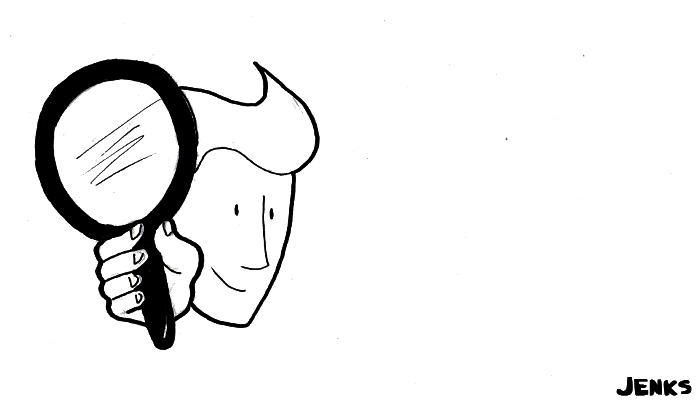I recently read a fascinating story that really highlights the arbitrary limits we place on people. And how we limit ourselves. The story that captivated me was of Daniel Kish – the blind man who taught himself to see.
Kish has been blind since he was 13 months old, but ‘sees’ his surroundings using tongue clicks and echolocation. Through listening to sound and echoes as they bounce off objects and structures around him, Kish taught himself to build up a mental map of his surroundings, enabling him to ‘see’ his way around. He can even differentiate between a metal or wooden fence by hearing the warmer or duller quality of echoes. He is literally using the visual brain to ‘see’ the world around him.
His perception of the world is as rich as ours, although differently achieved.
Kish’s work is based on an ethos of No Limits, and on a new paradigm: self-directed discovery and freedom first.
Kish is determined that life should be lived without limits. He now trains others: leading blind teenagers on wilderness hiking and mountain-biking trips, teaching them to safely navigate unfamiliar locations. They can ride skateboards and play sports with greater freedom. Through his non-profit organisation, World Access for the Blind, he uses scientific knowledge at the cutting edge of human perception and action to give blind people freedom to move and to live more independent, liberated lives. Blindness is not a disability – the only disabling thing is our attitude towards it, so Kish has dedicated his life to transforming societal attitudes – and the lives of people everywhere.
Daniel Kish sees aspects of the world that we are blind to. And similarly, our own blindness can be overcome. We only need to open our eyes to possibilities. His story is a brilliant demonstration of self-determination and living proof that no barrier is insurmountable.
I love the questions that a story like this creates in me.
What if we could see beyond our own blindness?
What if we could see beyond limits, to hope and achievement ?
It struck me how inspirational and transformational Kish’s attitude and work is – for our own thinking and belief systems.
Much of how we live our lives – or rather, how we don’t live our lives – is down to limiting beliefs.
What if our beliefs were limitless?
It is increasingly apparent that the only limits we have are those that society places upon us – and that we place upon ourselves. But we can create new paradigms of possibility – and thereby create a new reality.
If there is one important take-away message I’d like you to have, it’s to live your life without limits.
What if anything was possible?
What if we could fly? What if telepathy was possible? What if we could travel in time?
What if…?
Buy Me a Coffee
Did you love this article? If so please consider buying me a coffee.
Take The 50 Coffee Adventure
A Fun, Light and Easy Way to Build Connections
Or search your local Amazon store for "The 50 Coffee Adventure".

Hi Marc, I have to put your questions together and ask myself the same. I remember a quote by Og Mandino that goes along your lines: “The only limitations that you have are those that you set up in your mind or permit others to set up for yourself.”
good for the blind man in question. but why not look to do some boring basic graft and provide help practically, financially and emotionally for all the thousands who ain’t going to see like the exceptional man does? thousands of people in the developing world will be able to see, not by tongue clicks, but by simple ophthalmic surgery – simple but unaffordable to the poor. support that cause and a thousand will see again with collective organised support and not by dreaming that the the one extraordinary case will automatically mean a million extraordinary cases – the afflicted do not have that luxury of possibility.
Good one. At the end, it’s all about how we use our weakness to build our Strength.
Inspirational. Keep jotting.